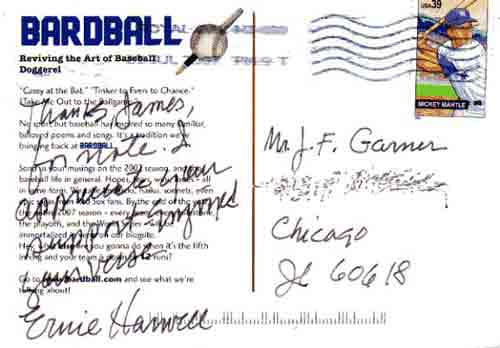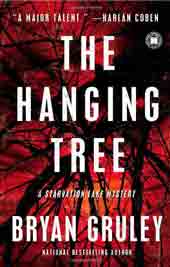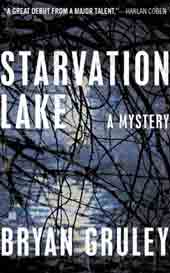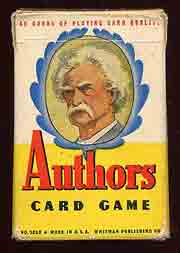Don’t know where the week went (or maybe I do, but aint tellin’), so I apologize for a lack of posting. I even forgot to wish Ernie Harwell a happy birthday, which would’ve been on Tuesday.

Don’t know where the week went (or maybe I do, but aint tellin’), so I apologize for a lack of posting. I even forgot to wish Ernie Harwell a happy birthday, which would’ve been on Tuesday.

At this moment in Chicago, it’s one degree outside. That’s weird to type. Sounds more like geometry than weather. “Two Degrees”, “one below”, “minus two”–yeah, all those roll off the tongue or keyboard. But not “It’s one degree.” Seems like it should lead to more comments or explanation, but it doesn’t.
With a couple exceptions, it’s been below freezing around here since Thanksgiving. The ice on the lake at the cottage must be like a mile thick now. At Christmastime it was strong enough to hold our weight walking all the way across, which was a first in my memory. It was smooth and clear and free of snow or scraping piles of frost. It gave me the chance to try ice fishing for the first time. Here I am with my trusty ice dog:

Man, did my dog have fun running around on the ice. He’s 12 or 13, but he acted like a mad dog out there, running full bore and slipping and crashing. Getting a walk in cold weather doesn’t thrill him, but playing out there with him has always been a joy.
I wish I were out there now, instead of splitting my attention between 15 things around the basement mezzanine office and getting very little done. Of course, out there I’d be getting NOTHING done, but it would have my full attention!
 Freezing mornings. Long stretches of silence. Ice-covered streets. This is a time of year I love. It’s also the time of year I go a little stir-crazy in my basement and start to think that I’ve got to get some kind of job.
Freezing mornings. Long stretches of silence. Ice-covered streets. This is a time of year I love. It’s also the time of year I go a little stir-crazy in my basement and start to think that I’ve got to get some kind of job.
Teaching. Editing. Stacking shelves. Anything seems good. Anything that will get me out into the world and interacting with people. Anything where someone is expecting me to show up.
I know. It’s not like I live on a ranch in Manitoba. I’m not drinking at 10 and eying the shotgun. And it sounds a little snobby to say that I think I need a job to mingle. I realize I’m very fortunate to still be able to live off my earnings. I know most writers would kill to have the time I have to scribble. But there it is.
Except this year feels a little different. The yearning to show up and be needed someplace is a little less acute. The cause of this might be that I’m the househusband now, and I’m doing most of the cooking, washing and chauffeuring of offspring. I’ve got a part-time job to keep me busy, and the family needs me because I’m keeping things on an even keel for everyone. Without me, there’d be a lot more frozen dinners and general screaming about where to find clean underwear.
Maybe my mind is also finally used to the fact that I go through this every January. I’ll bug friends for contacts and make phone calls and almost seriously consider interviewing for a teaching job. But now I realize that my reasons for doing so are half-assed and temporary. When March comes around, I’ll feel less constrained and a little more alive.
Right now, I’m not so productive. The writing projects I’m in the midst of feel like long slogs with no real roadmap or purpose. Piles of bookkeeping and paperwork clutter up the office like carcasses that need to be disposed of (especially now that I’ve got my e-books up and I have to start acting like a PR person, accountant and publisher). And around early afternoon, I start to think like a domestic engineer and get my June Cleaver on.
But it doesn’t seem too bad this year. I’ve got a feeling productivity will come, if I just keep pushing, and in the end, I won’t have shortchanged anyone who would hire me with my distractable frame of mind and self-centered habits.
 Earlier this fall, Bryan Gruley released the second book in his mystery series about a journalist in a small northern Michigan town. I liked the first title, Starvation Lake, very much, but like the second, The Hanging Tree, even more. Which is odd because the mechanics of the second mystery are a little less satisfying than the first. But the characters in The Hanging Tree were so deftly scripted, and their daily lives laid out with such believability, that I think the book is just terrific.
Earlier this fall, Bryan Gruley released the second book in his mystery series about a journalist in a small northern Michigan town. I liked the first title, Starvation Lake, very much, but like the second, The Hanging Tree, even more. Which is odd because the mechanics of the second mystery are a little less satisfying than the first. But the characters in The Hanging Tree were so deftly scripted, and their daily lives laid out with such believability, that I think the book is just terrific.
I’m not the only one, either. It was named one of the Michigan Notable Books of the Year, and listed as one of the Best Mysteries of the Year by Kirkus Reviews. There are probably a couple other accolades I’ve forgotten, but hey, call his publicist.
Bryan’s a friend of mine, so sure, I’m going to give his book a plug. But I also sincerely like these books. You don’t have to be a Michigander or a hockey fan to enjoy them (though it helps — I’m only one of those two). Bryan is a terrific storyteller with a deep personal affection for his characters and the lives they find themselves in, something that can’t be faked.
 A couple months ago, I joked with Bryan about organizing excursions to Starvation Lake, Michigan, to show all the sites to the book’s fans. (Jon Berendt made this a sort of cottage industry with Savannah after writing Midnight in the Garden of Good and Evil.) Bryan scoffed at the idea, and made a self-deprecating comment about needing a few more readers.
A couple months ago, I joked with Bryan about organizing excursions to Starvation Lake, Michigan, to show all the sites to the book’s fans. (Jon Berendt made this a sort of cottage industry with Savannah after writing Midnight in the Garden of Good and Evil.) Bryan scoffed at the idea, and made a self-deprecating comment about needing a few more readers.
But I personally wanted to see the fictional town of Starvation Lake. Somehow the descriptions in the second book challenged my assumptions and made it hard to visualize it further. The road is where? You can see THAT from HERE? Etc.
So over Christmas break on the way back from skiing up north, I took my family on a little side trip to the actual Starvation Lake. We got off US 131 in Mancelona, hoping to come at it from the north. Things were pretty snow covered up there. I don’t know how many of you live in places where there are official snowmobile paths laid crossing the highway, but there were plenty up there. We went about 5 miles, realized we missed the turnoff, turned around and went down a road that wasn’t exactly paved but had farmhouses on it. So, you know, civilization.
Well, it stayed snow covered, then it veered back west when we wanted to go south. So I forged ahead on what looked like a single-lane road, not uncommon in the country. It was pretty rutty and rocky. We passed another farmhouse or two as the trees got to be a little thicker. it was a guessing game which roads were more “official” and likely to coincide with the map. I saw some stop signs in the distance, which was comforting, but they weren’t standard size. Maybe the county was saving money on the back roads by putting up mini-signs? Some routes were very evidently for snow-mobiles, and some not so evidently.
 Everyone in the car but me was getting worried that we’d be sending Christmas Eve either stuck in the frost-bitten Michigan outback or in a hospital from an accident. I’ve been on slippier roads, but not recently and not sober. I turned east on what looked like a major road–by that I mean it was wide and had tracks on it and everything–and followed that winding path until we dead-ended at a small oil pump bobbing it’s head arthritically amid the snow and dried cattails.
Everyone in the car but me was getting worried that we’d be sending Christmas Eve either stuck in the frost-bitten Michigan outback or in a hospital from an accident. I’ve been on slippier roads, but not recently and not sober. I turned east on what looked like a major road–by that I mean it was wide and had tracks on it and everything–and followed that winding path until we dead-ended at a small oil pump bobbing it’s head arthritically amid the snow and dried cattails.
Okay, at this point I was persuaded that maybe this Kit Carson route wasn’t the best way to go, so we tried to find our way back. I did a Y-turn at the oil pump and didn’t end up stuck. Chalk one up for 35 years of winter driving. Just before a fork in the road, we caught a glimpse of a half-dozen snowmobilers blasting through the snow about 20 yards away. I slowed and stopped and gave the right of way, as if we were both on the roads designated for us. I still resolutely denied that I was driving on a snowmobile trail. I was on the road for the oil trucks, y’betcha.
I found our way back to a road with a real name (I’m pretty good with directions), and we drove all the way back to Mancelona. But I absolutely had to see the place by now, even though it was eating into our time to return and get ready for Christmas Eve. We took another left eastward off 131 and plowed on for a few miles. The road was still snow covered, but in certain patches you could see that there was indeed a paved road under it. Such City Slickers, needing pavement! After a while, we saw the sign for a Starvation Lake supper Club (“Champs”? I don’t remember), and followed the signs. They advertised “The Best Hamburgers in the World”, and judging by the cars in the lot, they must’ve been cooking something right (unless everyone was already getting tanked up for the holiday). We were still full from the gigantic bismarcks and bearclaws we’d bought in Petoskey at the beginning of the trip home, so we didn’t stop at the bar. I drove around Starvation Lake, hoping to maybe see the Gruley name on a mailbox or garage, but it was not to be. I even looked for the “hanging tree” the book is named after, but without luck. That will have to wait for another trip.
 I knew there was no real town called Starvation Lake. Bryan has said he modeled the town after another nearby city. Just guessing on the map, I thought he meant nearby Twin Lake. Which is good. Starvation Lake has exactly two commercial buildings. Both taverns. Twin Lake has two taverns AND a provisions store.
I knew there was no real town called Starvation Lake. Bryan has said he modeled the town after another nearby city. Just guessing on the map, I thought he meant nearby Twin Lake. Which is good. Starvation Lake has exactly two commercial buildings. Both taverns. Twin Lake has two taverns AND a provisions store.
Bryan must have been modeling the town after the nearby city of Mancelona. That place has brick buildings housing diners and insurance companies and hardware stores and the like. But it’s a little too big, and it sits alongside the US highway and not on the shore of a good-sized glacier-carved lake, so it can’t help in painting a mental image for me. (BTW, the actual Starvation Lake was absolutely gorgeous in the winter sunlight, sunk below the bluffs and curving subtly so it can’t all be seen from any one vantage point.) For now, it’s all in Bryan’s head, and I’ll just have to reread the books if I want a snapshot.
Photo of snowmobile trail from www.visitGaylord.com.
Linoleum print of Michigan, one of a 50-state series, found at Two Eyeballs.
Great cartoon by Ruben Bolling (“Tom the Dancing Bug”) here.
See? Using the PC double-talk is still funny, all you haters.
Been reading so much for the past few days on the shooting in Tucson, way too much. A little bit has been about the actual incident, but most of it is about trying to figure out if anyone besides the shooter is to blame. What caused him to do it? Talk radio? Mein Kampf? Mental illness? Smoking pot (Thanks, David Frum, for never ignoring the truly ridiculous)?
I’m hoping it makes people consider what kind of America they want to live in. Of course, I thought about that after the Oklahoma City Bombing, and after 9/11, that it might cause some soul-searching. I was wrong, or maybe I didn’t like the answer. Maybe the Price of Freedom (speech, guns, or from responsibility) is worth the price of a dead nine-yr-old, a federal judge, and some retirees. For some people, it probably is, but it’s time for everyone to come clean about it.
Come on, America — we KNOW ourselves. We know our neighbors and our second cousins. Do we really think that everyone here has evolved enough to resist being driven crazy by all this violent blather?
I’m glad Sarah Palin finally commented on the shooting, and not surprised that she acted defensively, meanly, lashing out against her critics instead of showing a little humanity and humility. Can you imagine what goes on in that head? Nine people dead, and still, it’s all about her. And to describe a media-manufactured “blood libel”? Good God, how ignorant. “Blood libel” — does anyone with more than a high school education vet her comments? I don’t know if I’m more repulsed by her ignorance or her narcissism, but the end result is the same. She’s shown herself to be incapable of responding to a crisis in any kind of useful way.
Of course, I don’t blame Palin for the shooting — she’s just the visible coiffed head of the GOP right now. She also happens to use violent rhetoric and images constantly, and loves showing off how poorly she can handle a hunting rifle. The whole conservative movement is to blame, for not calling out the elements within it that wave the bloody shirt and scream about revolution. I don’t blame the “Tea Partiers”–I blame SOME of the Tea Partiers who, in their rage that the country will soon have a non-white majority, wave their guns around and scream about taking their country back by force, “blood of tyrants watering the tree of liberty” and all that bullying crap. I’m glad that Rep. Clyburn from South Carolina pointed out the rhetorical calls for violence reminds him of the civil rights era, and how hot tempers and manipulative speeches can contribute to getting people killed.
Or as the guy at Driftglass said, It’s not just one of them, it’s ALL of them.
While there’s a bunch of renewed talk about gun control now, it will come to zilch. I doubt there will be even the slightest tightening of Arizona’s laws, about which I know nothing. We’ve been told giving up any gun rights will lead to tyranny, so now we’ll have to deal with the tyranny of fear.
What I would hope is that the massacre might start a conversation about mental illness and how we try and ignore it. We still don’t know if the shooter had had any type of treatment for what was happening to him, but we know for certain that nobody was surprised by his actions. His outbursts and his violent nihilism was obvious to everyone in his life, apparently. Was there any attempt to treat him? I read one story that half the people in his home county had had their treatments for mental illness discontinued this year. It’s not the common cold — you can’t tell people to “tough it out” and get on with their lives.
Ever since deinstitutionalism in the 1980s, we’ve all seen people wandering the streets who should be getting some psychiatric care. Do they all become assassins? Thankfully no, but the way we treat them as disposable is a reflection of how we value life in this country. We shouldn’t be surprised when someone acts savagely, when we treat so many people as less-than-human.
Like I wrote in the post below, I was interviewed by the Swiss paper Le Temps about the whole bowdlerization-of-Huck-Finn dust-up going on. The reporter didn’t send me the PDF like she promised, so I went on the website this morning and found I’d said this:
Joint aux Etats-Unis, James Finn Garner, auteur du grinçant Politiquement correct: contes d’autrefois pour lecteurs d’aujourd’hui (traduit chez Grasset, 1995), se réjouit que la décision de la maison d’édition ait provoqué une telle polémique. «Il y a un vrai débat. Les gens en ont marre du politiquement correct. Et tout colorer en rose ne change pas le fait que l’Amérique reste un pays disloqué, inégal, encore très raciste.»
Hope I come off good. I think she’s quoting my most lurid comment, like that’s surprising or something. Here’s what Babelfish says I said:
Joint with the United States, Fine James Garner, author of squeaking Politically correct: tales of formerly for readers of today (translated at Grasset, 1995), is delighted that the decision of the publisher caused such a polemic. “There is a true debate. People have some enough of politically correct. And all to colour pink does not change yet the fact that America remains a dislocated country, unequal, very racist.”
Didn’t know my book was “squeaking”, but I’ll take it as a compliment.
 Just got off the phone with a journalist from Le Temps, which is a big daily newspaper in Switzerland. She wanted my opinion on the bowdlerization of The Adventures of Huckleberry Finn, which has dominated the news cycle during this slow week. I’m Mr. Politically Correct, after all, so I was flattered to be remembered and asked my opinion. At least her call forced me to think a little about the plan and my reactions to it.
Just got off the phone with a journalist from Le Temps, which is a big daily newspaper in Switzerland. She wanted my opinion on the bowdlerization of The Adventures of Huckleberry Finn, which has dominated the news cycle during this slow week. I’m Mr. Politically Correct, after all, so I was flattered to be remembered and asked my opinion. At least her call forced me to think a little about the plan and my reactions to it.
Of course, substituting “Slave” for “nigger” in Huck Finn is ridiculous, but like many a ridiculous plan, someone is going to try it. The professor who is editing the volume says it’s intended for the teachers who want to use it in the classroom but are worried about lawsuits. I’m sympathetic to the teachers’ potential issues, but I have a suspicion that some people want the book to be a rollicking adventure story suitable for preteens, rather than the complex and often painful book it is. It’s not a book about a cracking fun raft ride, it’s about a young orphan’s moral growth and rejection of basically everything around him.
And Mark Twain is not our more literary version of Will Rogers. Just imagine the world of American letters without him, how arid and provincial and easily manageable the remaining writers would seem. We NEED the difficult, ornery, contradictory and flawed writer that Mark Twain was, because the era in which he grew up gave us a lot to be ashamed about. A lot that we need to remember.
Twain was a stickler for language, and he had the chance often in his life to change the offending word to something else. But nothing else had or still has the punch, the sting, the stink of human hate. “Nigger” is nowhere near the equivalent of “slave” (even though someone in the NYT asked why “slave” should be considered inoffensive in its own right). Nowhere near the dehumanization, the belittling, the oppression and pain. Was America built on the backs of slaves? Yep, right up til 1865. Was it built on the backs of niggers? Even more so, from sea to shining sea, and continues to this day. And, (not to diminish what black Americans have suffered) they come in many colors.
But I don’t think this new edition will gain any traction at all. For one thing, it’s still easy to pick up Huck Finn and enjoy it, so the original version will always attract readers who want to see what all the fuss is about. It’s not a fusty old cadaver of a book, it’s maddeningly alive. And until something else comes along, like Hemingway wrote, all American literature flows from it. I tried to explain this to the Swiss journalist, but probably didn’t do it adequately. For every person who might want to change the text, there are 50,000 of them who want to preserve it. (Now, if he’d made fun of religion or capitalism in it, like he did in his other lesser-known books, it might be a different story.)
It was gratifying to hear the reporter (who sounded kind of young, maybe in her 30s) talk about how people all over Europe and the rest of the world take a great deal of interest in American culture, and the perception that if America is anything, it’s a place where freedom of speech is a paramount virtue. She stumbled a bit when she almost said, “But America is still a racist country, right?” I agreed with her partially, that some parts (not just geographical) of the country will always be racist, but more to the point, it will always be an unequal society, which is why we can’t sanitize writers like Twain.
What’s more likely to diminish racism in America, editing out one word from a novel, or having people read the novel and be confronted all its pain and cruelty? The answer is obvious.
At least all this news coverage has unearthed a Twain quote I’d never heard before, which I really like: “Censorship is telling a man he can’t have a steak just because a baby can’t chew it.”
The show “Static Creep” will be opening on Friday, January 14 at the Los Manos Gallery in Chicago’s Andersonville neighborhood. It was put together by my friend Tony Akins, and will feature art from him and more than 20 artists, including:
Chris Burnham, Corinne Mucha, Jill Thompson, Gary Gianni, Andrew Pepoy, Alex Wald, Mike Norton, Hilary Barta, Dave Dorman, Jeffrey Brown, Jenny Frison, Sarah Becan, Nicole Hollander, Mitch O’Connell, Douglas Klauba, Heather McAdams, Lucy Knisley, Tim Seeley and Bill Reinhold.
If you can’t find someone in that group to love, you’re a pitiable wretch and it’s no wonder dogs and children avoid you.
Here’s Tony, speaking authoritatively in that booming voice of his:
StatiCCreep from Mieke Zuiderweg on Vimeo.